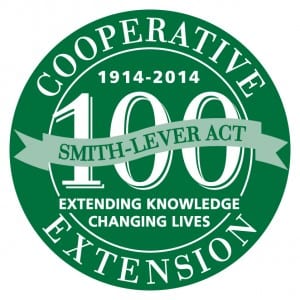 I wish UConn Extension was not the best-kept secret in the state. It’s time everybody knew what a tremendous resource Extension is. Congress established the Cooperative Extension System as a national network in 1914 to tie university research to real life. UConn Extension programs have evolved over time, and as our state has changed, so has Extension to meet new and emerging needs. One hundred years after its inception, UConn Extension continues to impact the lives of our citizens statewide as it did 100 years ago.
I wish UConn Extension was not the best-kept secret in the state. It’s time everybody knew what a tremendous resource Extension is. Congress established the Cooperative Extension System as a national network in 1914 to tie university research to real life. UConn Extension programs have evolved over time, and as our state has changed, so has Extension to meet new and emerging needs. One hundred years after its inception, UConn Extension continues to impact the lives of our citizens statewide as it did 100 years ago.
The Smith lever Act came out of Congress to help communities grow better crops and plants, use land more wisely and provide safer food. It began by engaging youth through 4-H, their parents through adult education and farmers through training in cropping systems and business management. Those concepts still hold today but it has gone beyond rural agriculture and into urban audiences. These are “university” students in the community who still have concerns about growing food in a variety of ways, still have concerns about how we use our land and now more than ever, want information about food safety and nutrition.
A recent analysis found eleven or more UConn Extension programs are delivered in every single town throughout Connecticut. Over one hundred UConn Extension faculty and staff deliver 282 established programs that are grouped into four broad topic areas: food production, healthy living, environmental sustainability, and youth development/leadership. Here are a few examples of how UConn Extension has touched my life and is making a difference in the lives of others:
- Ten years ago I became a Certified Master Gardener through UConn Extension. It opened my eyes to the impact that suburban homeowners have on polluting streams and waterways with fertilizer runoff, herbicides and pesticides. Our landscape management practices are dramatically different today; and my family is far more sensitive to reuse – we recycle to protect our environment and its limited resources.
- Last month while preparing for an upcoming Farm Tour to benefit Extension, I met with a farmer who spoke with deep appreciation, and respect for his UConn Extension specialist. He helped the farmer implement techniques that reduce land erosion and production costs. Keeping farmers prosperous and productive makes our state a better place to live.
- Ever since volunteering in a program to feed homeless, I’ve been sensitive to the thousands of people in our state who live with food insecurity, (not knowing when or where they’ll get their next meal). In 2013, UConn Extension helped research and publish a town-by-town analysis that provides those who run meal programs with much needed data to battle hunger in their towns. UConn Extension also directly helps families receiving government food assistance by sending their Expanded Food & Nutrition Education Program specialists to community centers, teaching people how to stretch food assistance dollars with healthy food choices, and tasty meals.
- The scope of 4-H has expanded since I was a member of a 4-H Club in Pennsylvania more than 40 years ago. Today over 17,700 Connecticut youth are enrolled in traditional clubs, and urban clubs located in towns like Bridgeport, Danbury, New Haven and Hartford. Just as they did years ago, 4-H still emphasizes learning by doing, and nurtures leadership and citizenship skills important to creating strong, capable, future adults. The urban 4-H clubs provide after school programs that educate youth while keeping them safe and off the streets.
Remember, UConn Extension has 282 programs, plus thousands of electronic and written resources designed for consumers like you and me. Many services are free, low cost or priced at very affordable rates to defray costs. Our federal and state tax dollars along with over $6.8 million in external grants, obtained by Extension educators, enable UConn Extension to be accessible and relevant information for the needs and concerns of today’s Connecticut. Explore the hundreds of services and programs available through your UConn Extension! Find out more by visiting: www.extension.uconn.edu
Jennifer Riggs
UConn Extension volunteer
Chair, Centennial Committee